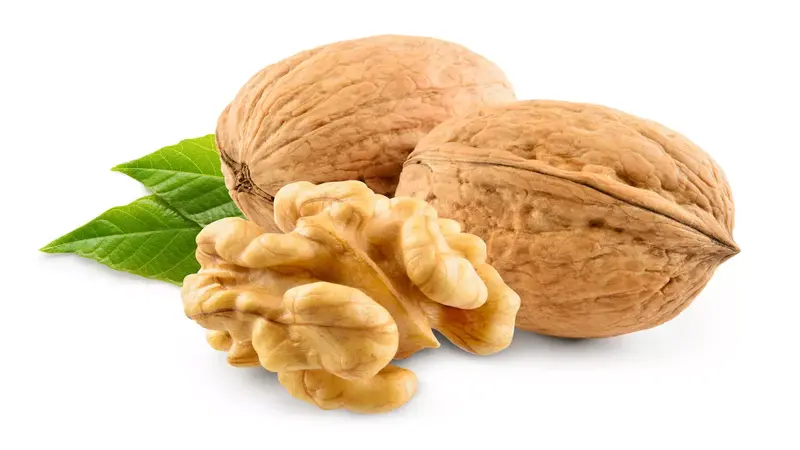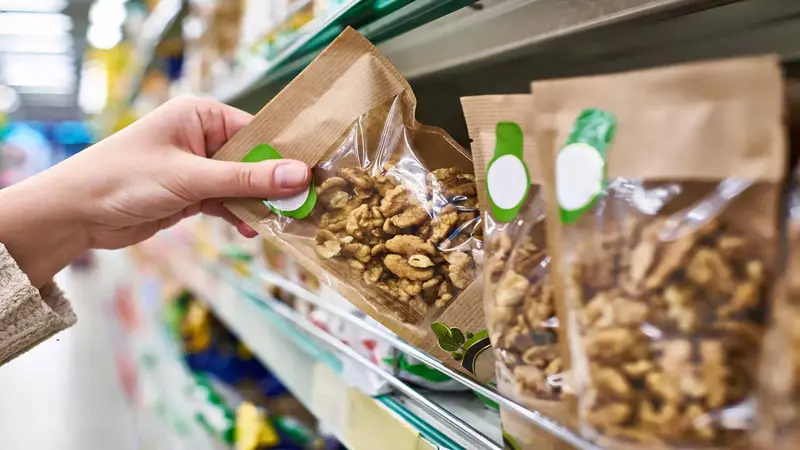 Parenthood is a reflective journey that requires prioritizing the well being of themselves and the baby. It is like happiness with responsibilities. During pregnancy, focusing on a healthy diet is important for the proper growth and development of the fetus. Therefore, incorporating healthy options in your diet signifies the fetus is getting enough nutrients for their rapid growth.
Parenthood is a reflective journey that requires prioritizing the well being of themselves and the baby. It is like happiness with responsibilities. During pregnancy, focusing on a healthy diet is important for the proper growth and development of the fetus. Therefore, incorporating healthy options in your diet signifies the fetus is getting enough nutrients for their rapid growth.
Meanwhile, you must have received multiple tips to eat nutritious food during this period. Similarly, you must hear about the benefits of walnuts during pregnancy. Thus, Eating Walnuts During Pregnancy: Are They Safe? Let’s know in detail.
Is It Safe To Eat Walnuts During Pregnancy
Also known as Akhrot in Hindi, Walnuts are extremely healthy and safe to consume during pregnancy completely. The kernel of a walnut resembles a brain, and it also not only resembles the brain but also helps in the proper functioning of your brain. The presence of Folate (1) in Walnuts shows a good reduction of neural tube defects in the fetus. Apart from it, there are a number of other potential benefits of eating walnuts (2) while pregnant.
Care should be taken that it is consumed in moderate amounts and allergies and so it is better to consult healthcare experts before adding these nuts in your diet. Also, when buying these nuts, make sure they are oblong with a thin shell. Avoid walnuts with dark spots and rancid smell.
Nutritional Benefits Of Walnuts
 Walnuts provide essential nutrients and phytonutrients such as phenolic acids, flavonoids required for overall health. They primarily consist of monounsaturated fatty acids (MUFA) and polyunsaturated fatty acids (PUFA) specifically oleic acid (OA) and alpha-linolenic acid (ALA) which is highest among all tree nuts in terms of fatty acid content. (3)
Walnuts provide essential nutrients and phytonutrients such as phenolic acids, flavonoids required for overall health. They primarily consist of monounsaturated fatty acids (MUFA) and polyunsaturated fatty acids (PUFA) specifically oleic acid (OA) and alpha-linolenic acid (ALA) which is highest among all tree nuts in terms of fatty acid content. (3)
Macronutrients in walnuts:
Walnuts provide around 654 kcal per 100 grams where 40 percent is made up of essential fatty acids. These nuts provide omega -3 fatty acids (4) like Alpha Linolenic Acid (ALA) which helps to improve maternal and fetal cardiac health, reduces blood clots (5) and stabilizes maternal mental health (6). Being a plant protein source, these nuts improve insulin sensitivity (7), help to grow tissues and organs of the fetus as well as fosters breast and uterine tissue growth.
Micronutrients and Antioxidants in Walnuts:
Walnuts are rich in Vitamin E (8) as Gamma-tocopherol and minerals like Selenium (9), Zinc (10), Magnesium (11) and Manganese (12) which supports the body system and prevents poor fetal development. These micronutrients greatly help your immune system, decrease the risk of preterm delivery and also improve your metabolism by preventing placental dysfunction.
As you can see, walnuts come with a host of nutritional benefits, justifying being the king of nuts! Now, let’s find out whether they are as good in pregnancy.
Health Benefits Of Eating Walnuts During Pregnancy
Tree nuts like Walnuts have countless health benefits. It is packed with lots of minerals and vitamins which helps in the healthy development for you and your unborn child. The Omega-3 found in walnuts help in the development of the eyes and brain of your unborn baby as well as for your heart. It provides approx 2.5 grams of omega-3 as well as omega-6 fatty acids from 30 grams serving. (13)
Walnuts also provide essential minerals like magnesium, manganese and Zinc required for fetal growth and strengthening of cartilage and bones in the fetus, minimizing the severity of infections and reducing the chances of preterm delivery. This tree nut is optimum in copper, essential for developing the baby’s red blood cells, blood vessels, nervous system, skeletal system, and heart.
Walnuts contain amino acids such as Lysine, Threonine and Arginine (14) reduces incidence of hypertension by regulating blood flow properly while keeping lipids under control during pregnancy. Soluble Fiber (15) and protein present in walnuts improves heart health, minimizes diabetes and constipation, and preeclampsia. Together, they help in maintaining maternal tissues, strengthen immunity and assure a healthy weight for your baby.
How Many Walnuts Can I Take During Pregnancy?
 Walnuts are edible, delicious nuts which are super-healthy to be consumed in moderate amounts. The recommended portion for walnuts during pregnancy is 3-4 kernels (30) grams approx). Soaked walnuts are better digested and absorbed than raw. (16)
Walnuts are edible, delicious nuts which are super-healthy to be consumed in moderate amounts. The recommended portion for walnuts during pregnancy is 3-4 kernels (30) grams approx). Soaked walnuts are better digested and absorbed than raw. (16)
What Are The Risk Factors Of Eating Walnuts During Pregnancy?
It is no doubt that walnuts are a powerhouse of essential nutrients if eaten in moderation. Excess consumption can be detrimental to you and the upcoming baby.
- Among the first eight foods that cause allergy, walnut is one. So if some symptoms like wheezing, coughing, skin rashes, swelling of lips, and sneezing develops after eating a walnut, consult a doctor before taking it anymore
- Sometimes its property of preventing blood from clotting to improve the blood flow will turn to be a curse at the process of delivery by increasing the bleeding
- Eating too much of walnuts during pregnancy is found to cause diarrhea, limit the intake to be a handful of walnuts every day
- Having four to five walnuts per day is considered to be a proper consumption. Having walnuts in a limited quantity suggested by your doctor is recommended during pregnancy
How To Include these In Your Pregnancy Diet Plan?
 You may try the different ways of incorporating walnuts during pregnancy into your diet plan.
You may try the different ways of incorporating walnuts during pregnancy into your diet plan.
- Add the whole or finely chopped walnuts in your salads or as toppings in it.
- Include it to baked foods, vegetables, and fruit salad, and fish dishes or meat for a rich and crunchy taste in it.
- Finely chop the three to four nuts and mix it in a glass of water with two tablespoons of honey in it. It helps relieve stress, insomnia, and headache.
- Slice a banana, dip it in the honey, and top with the chopped walnuts. These snacks will keep you full and may help you to manage the sweet cravings.
Walnuts are healthy and should be added, and it cautious in your pregnancy diet plan. Have them in a moderate way for variety, but most important for health. If you are in doubt about eating them or think you may have allergic to them, talk with your doctor first before consuming it.
What Precautions Should Be Take?
- Ask your doctor before your diet plan to include them in your diet.
- Prefer natural nuts only. Avoid some variants such as salt coated, sugar-coated, or candied walnuts.
- Store it in the airtight container or fridge to keep them fresh.
Storing Walnuts
 Walnuts are rich in oil. So if you keep them at room temperature, they will quickly get spoiled. Therefore always store them in the refrigerator or in airtight containers. Enjoy this tasty, crunchy nut, in limits (as suggested by a doctor), without inhibitions during your pregnancy. Click here to read about eating nuts and seeds during pregnancy.
Walnuts are rich in oil. So if you keep them at room temperature, they will quickly get spoiled. Therefore always store them in the refrigerator or in airtight containers. Enjoy this tasty, crunchy nut, in limits (as suggested by a doctor), without inhibitions during your pregnancy. Click here to read about eating nuts and seeds during pregnancy.
Eating Walnuts during pregnancy has many benefits for both mother and fetus. These wonderful nuts can be consumed in different ways- smoothies, dry fruit ladoos and many more. Mothers should be cautious about eating too much. Consulting with healthcare experts is recommended to determine the best for both.
FAQ’s
1. Can Walnuts Give me Allergy During Pregnancy?
Yes, they can. Nuts are a common source of allergies. Pregnancy makes your system more fragile, increasing the risks.
2. Can Eating Walnuts During Pregnancy Help Improve Baby’s Brain?
Yes, it can. Walnuts are brain food. They are rich in omega-3 fatty acids which are important for brain development.
3. Can Walnuts Help You Stay Young?
Walnuts are rich in antioxidants. They help reduce cell damage. Thus helping you look younger.
4. Can Walnuts Help my Sleep Problems During Pregnancy?
Yes, they can to an extent. They are rich in melatonin. A sleep inducing hormone.
References –
- Folic Acid Supplementation and Pregnancy: More Than Just Neural Tube Defect Prevention
[https://www.ncbi.nlm.nih.gov/pmc/articles/PMC3218540/] - Health benefits of walnut polyphenols: An exploration beyond their lipid profile [https://www.tandfonline.com/doi/abs/10.1080/10408398.2015.1126218]
- Physical, Nutritional and Functional Properties of Walnuts Genotypes (Juglans regia L.) from Romania
[https://www.mdpi.com/2073-4395/11/6/1092] - Omega-3 Fatty Acids and Pregnancy
[https://www.ncbi.nlm.nih.gov/pmc/articles/PMC3046737/] - The mechanism of oleic acid inhibiting platelet activation stimulated by collagen [https://www.ncbi.nlm.nih.gov/pmc/articles/PMC10563249/]
- Assessing omega-3 fatty acid supplementation during pregnancy and lactation to optimize maternal mental health and childhood cognitive development
[https://www.tandfonline.com/doi/abs/10.2217/clp.12.1] - Benefits of Nut Consumption on Insulin Resistance and Cardiovascular Risk Factors: Multiple Potential Mechanisms of Actions
[https://www.ncbi.nlm.nih.gov/pmc/articles/PMC5707743/] - Vitamin E: maternal concentrations are associated with fetal growth [https://www.ncbi.nlm.nih.gov/pmc/articles/PMC1876684/]
- Selenium supplementation and pregnancy outcomes [https://www.frontiersin.org/articles/10.3389/fnut.2022.1011850/]
- Zinc supplementation for improving pregnancy and infant outcome [https://www.ncbi.nlm.nih.gov/pmc/articles/PMC7043363/]
- The Role of Magnesium in Pregnancy and in Fetal Programming of Adult Diseases [https://www.ncbi.nlm.nih.gov/pmc/articles/PMC8360883/]
- Selenium, Zinc, and Manganese Status in Pregnant Women and Its Relation to Maternal and Child Complications
[https://www.ncbi.nlm.nih.gov/pmc/articles/PMC7146474/] - Health Benefits of Nut Consumption
[https://www.ncbi.nlm.nih.gov/pmc/articles/PMC3257681/] - Impact of Arginine Nutrition and Metabolism during Pregnancy on Offspring Outcomes [https://www.mdpi.com/2072-6643/11/7/1452]
- High-Fiber Diet during Pregnancy Characterized by More Fruit and Vegetable Consumption
[https://www.ncbi.nlm.nih.gov/pmc/articles/PMC7824257/] - The Effect of Daily Walnut Consumption on Dyslipidemia [https://www.hindawi.com/journals/jfq/2018/4731826/]

